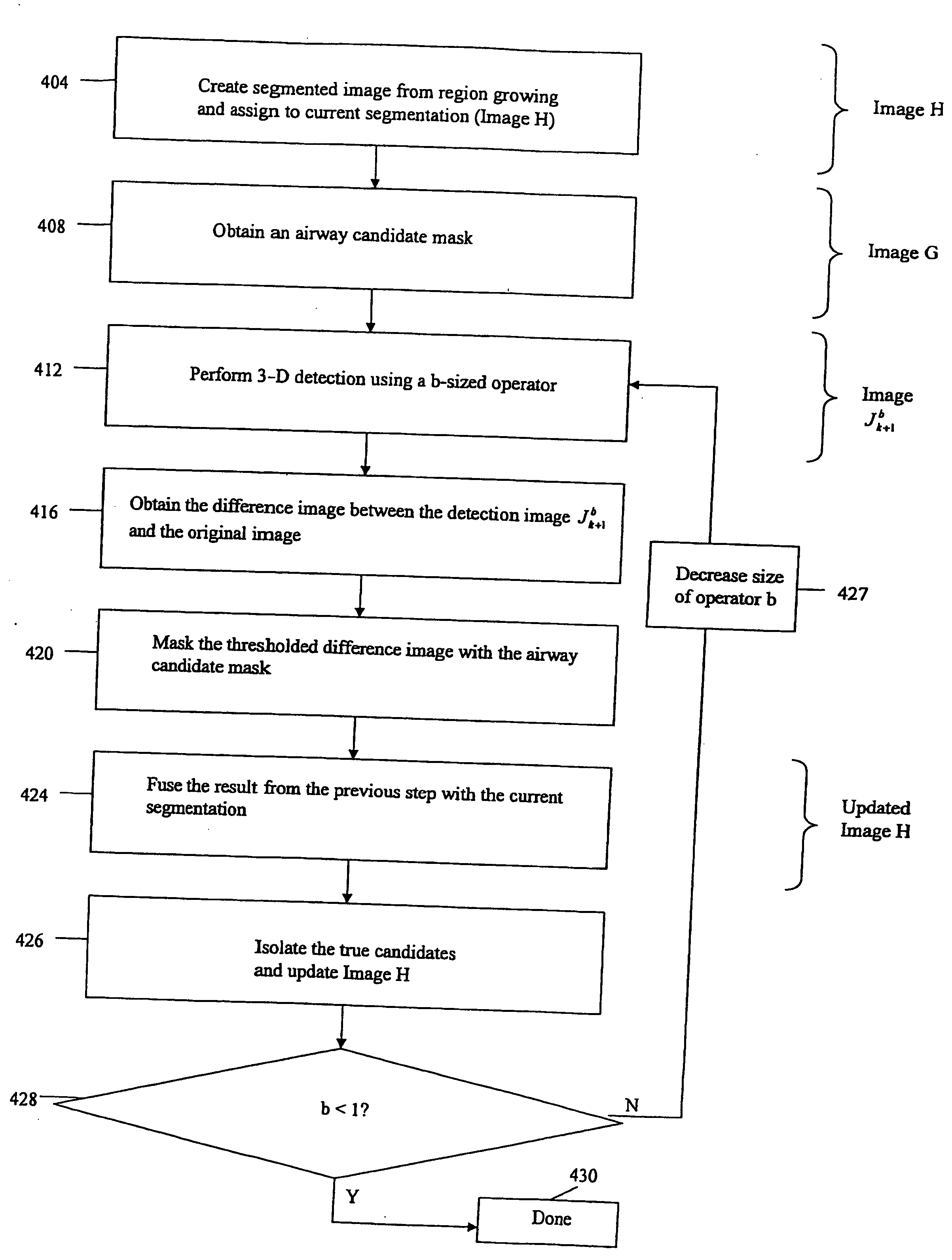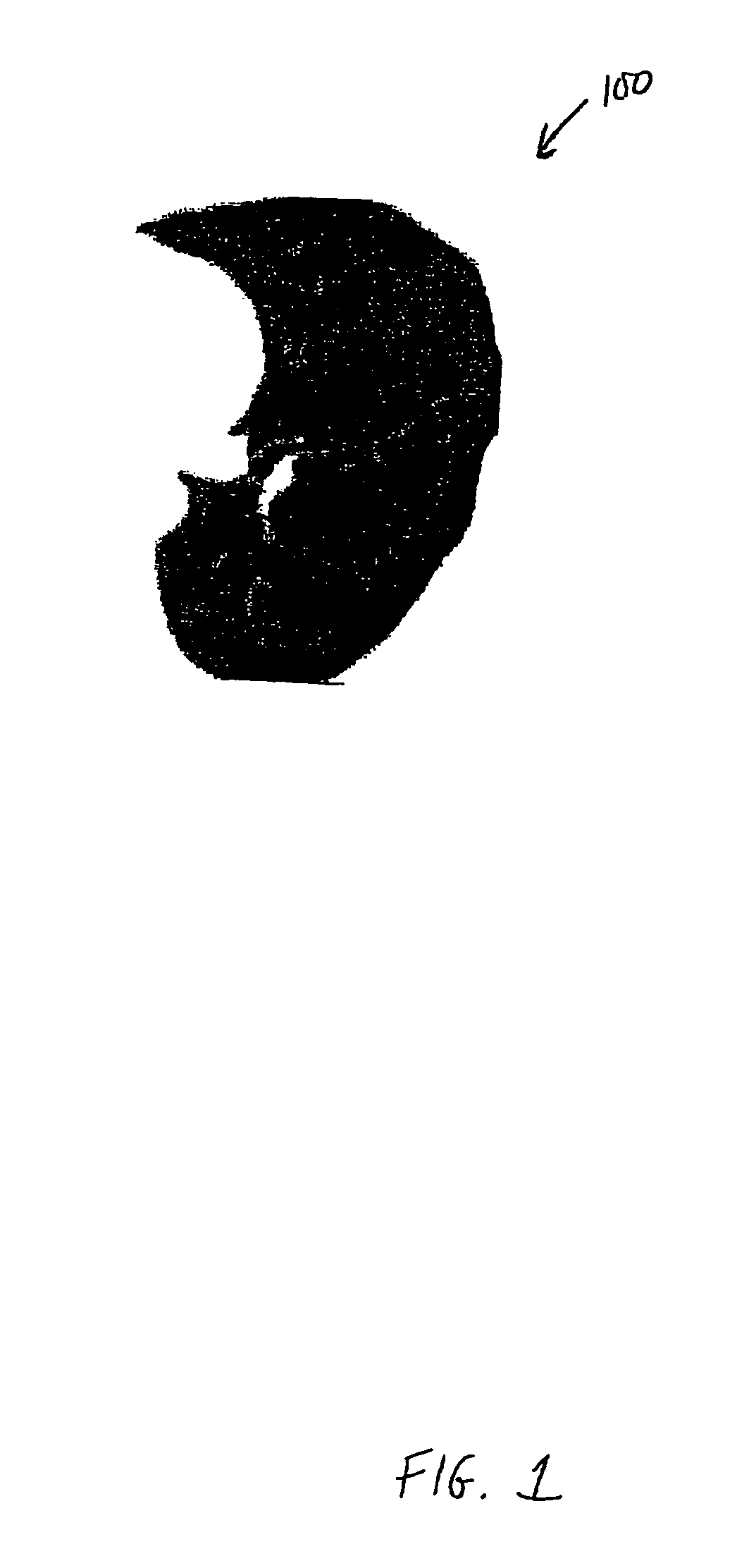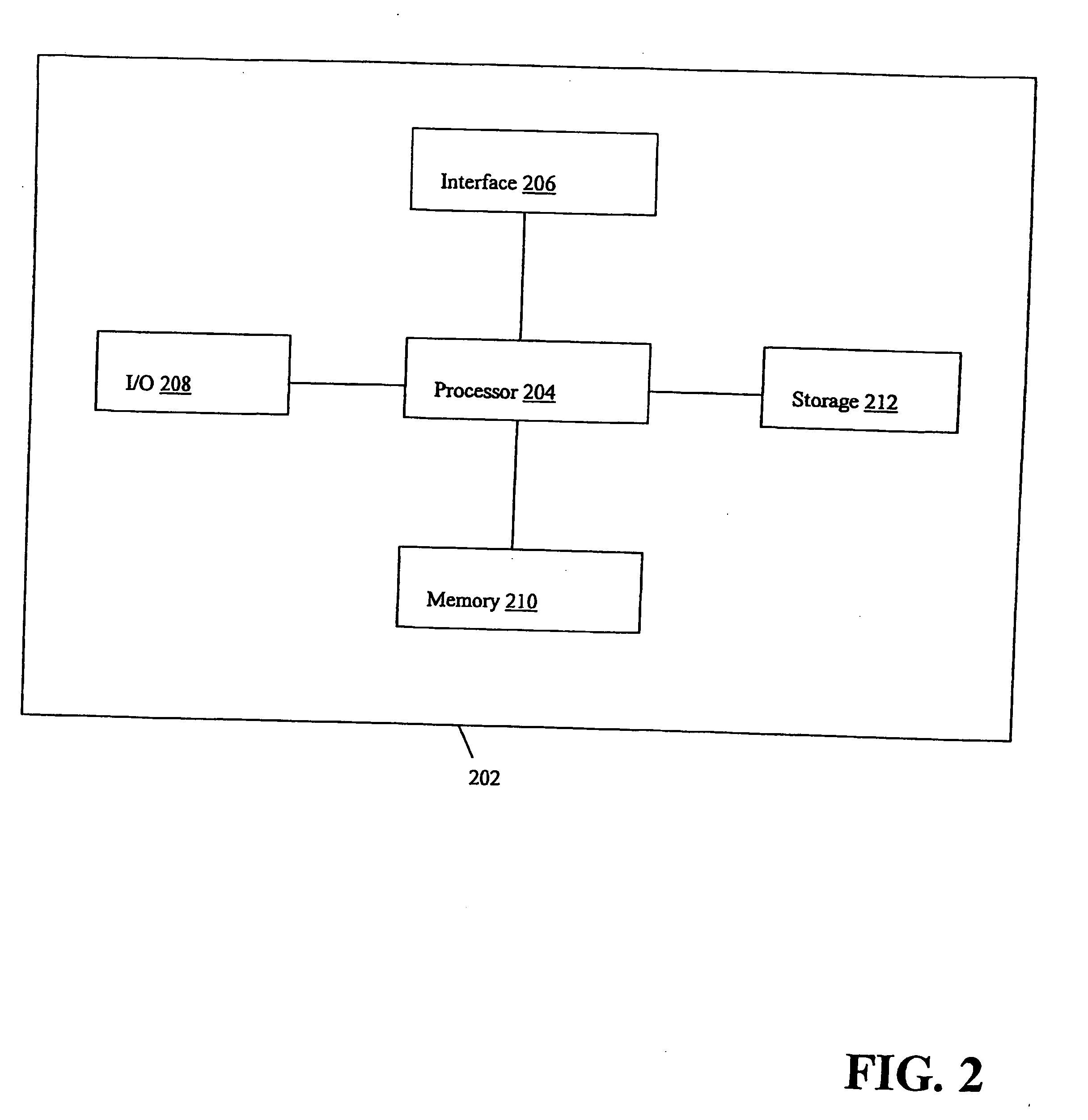Method and apparatus for airway detection and segmentation
a technology of airway tree and morphology operator, applied in the field of airway segmentation, can solve the problems of virtually impossible to use a simple threshold to identify all airway voxels within an image, thin or stenosed airways can appear broken or discontinuous, and airway tree segmentation is traditionally a challenging problem
- Summary
- Abstract
- Description
- Claims
- Application Information
AI Technical Summary
Problems solved by technology
Method used
Image
Examples
Embodiment Construction
[0031] The following description describes the present invention in terms of the processing steps required to implement an embodiment of the invention. These steps may be performed by an appropriately programmed computer, the configuration of which is well known in the art. An appropriate computer may be implemented, for example, using well known computer processors, memory units, storage devices, computer software, and other components. A high level block diagram of such a computer is shown in FIG. 2. Computer 202 contains a processor 204 which controls the overall operation of computer 202 by executing computer program instructions which define such operation. The computer program instructions may be stored in a storage device 212 (e.g., magnetic disk) and loaded into memory 210 when execution of the computer program instructions is desired. Computer 202 also includes one or more interfaces 206 for communicating with other devices (e.g., locally or via a network). Computer 202 als...
PUM
 Login to View More
Login to View More Abstract
Description
Claims
Application Information
 Login to View More
Login to View More - R&D
- Intellectual Property
- Life Sciences
- Materials
- Tech Scout
- Unparalleled Data Quality
- Higher Quality Content
- 60% Fewer Hallucinations
Browse by: Latest US Patents, China's latest patents, Technical Efficacy Thesaurus, Application Domain, Technology Topic, Popular Technical Reports.
© 2025 PatSnap. All rights reserved.Legal|Privacy policy|Modern Slavery Act Transparency Statement|Sitemap|About US| Contact US: help@patsnap.com



